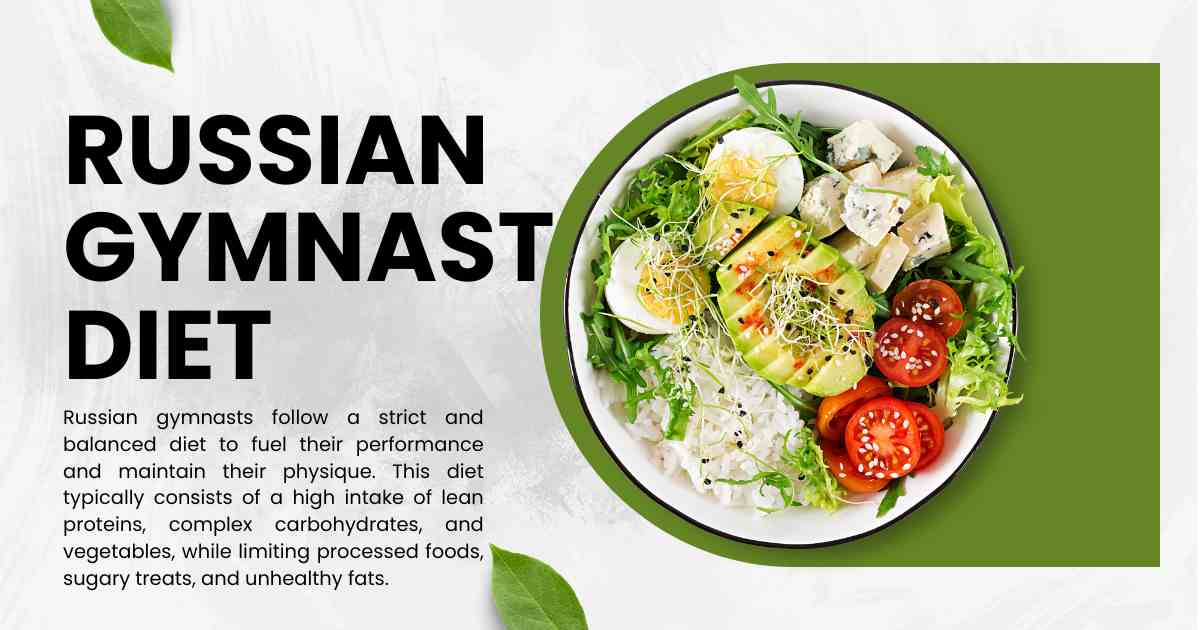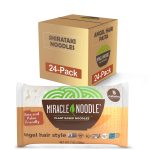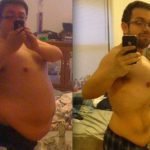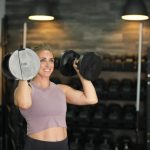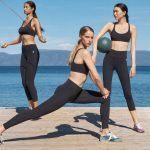Russian gymnasts follow a strict and balanced diet to fuel their performance and maintain their physique. This diet typically consists of a high intake of lean proteins, complex carbohydrates, and vegetables, while limiting processed foods, sugary treats, and unhealthy fats.
The emphasis is on nutrient-dense foods that provide sustained energy, aid in muscle recovery, and promote overall health and well-being.
Benefits Of A Russian Gymnast Diet
A Russian gymnast’s diet is known for its ability to enhance performance and optimize the overall well-being of athletes. Its benefits are not limited to gymnasts alone; anyone looking to improve their energy levels, strength, endurance, and muscle recovery can benefit from this diet.
Improves Energy Levels
Consuming a Russian gymnast diet can significantly improve your energy levels, allowing you to perform at your best. This diet focuses on providing the body with high-quality carbohydrates, such as whole grains, fruits, and vegetables. These complex carbohydrates provide a sustained release of energy throughout the day, keeping you energized and fueled during intense workouts or competitions.
Enhances Strength And Endurance
The Russian gymnast diet emphasizes the importance of lean protein sources, such as fish, chicken, and dairy products. These protein-rich foods help to build and repair muscles, ultimately enhancing strength and endurance. By including an adequate amount of protein in your diet, you provide your body with the necessary nutrients to support muscle growth and improve performance.
Supports Muscle Recovery
Intense training sessions can lead to muscle soreness and fatigue. The Russian gymnast’s diet includes foods rich in antioxidants, such as berries, nuts, and green vegetables. These antioxidants help to reduce inflammation, promote faster muscle recovery, and decrease the risk of injury. Additionally, the diet’s emphasis on hydration ensures that your body remains properly fueled and replenished, aiding in the recovery process.
Key Components Of The Russian Gymnast Diet
The Russian Gymnast Diet is renowned for its emphasis on nutrition that fuels athletic performance. Key components of this diet include high-protein foods, complex carbohydrates, and healthy fats. By incorporating these essential elements into their daily meals, Russian gymnasts can maintain their strength, agility, and endurance throughout their training sessions. Let’s explore each of these components in detail:
High Protein Foods
Protein is an important building block for muscle development and repair, making it an essential part of the Russian Gymnast Diet. The diet focuses on incorporating lean sources of protein that are low in fat. Some of the high-protein foods commonly consumed by Russian gymnasts include:
- Chicken breast
- Turkey breast
- Eggs (including egg whites)
- Fish (such as salmon and tuna)
- Greek yogurt (low-fat or fat-free)
- Cottage cheese (low-fat or fat-free)
These protein-rich foods help to repair muscles and support overall muscle growth, allowing gymnasts to perform at their best during intense workout sessions.
Complex Carbohydrates
Complex carbohydrates provide sustainable energy for gymnasts, helping to fuel their rigorous training sessions and competitions. These carbohydrates are slowly digested, providing a steady release of glucose into the bloodstream. Some excellent sources of complex carbohydrates within the Russian Gymnast Diet include:
| Complex Carbohydrates | Examples |
|---|---|
| Whole grains | Brown rice, quinoa, oats |
| Legumes | Beans, lentils, chickpeas |
| Fruits | Apples, bananas, berries |
| Vegetables | Spinach, broccoli, sweet potatoes |
By consuming these complex carbohydrates, gymnasts provide their bodies with the necessary fuel to perform at their peak levels, avoid fatigue, and maintain their mental focus during intensive training sessions.
Healthy Fats
Contrary to popular belief, fats are an essential part of a balanced diet, including the Russian Gymnast Diet. Healthy fats provide gymnasts with long-lasting energy, support hormone production, and aid in the absorption of fat-soluble vitamins. Some examples of healthy fats that are commonly included in the Russian Gymnast Diet are:
- Avocado
- Nuts (such as almonds and walnuts)
- Seeds (such as chia seeds and flaxseeds)
- Olive oil
- Fatty fish (such as salmon and sardines)
These fats not only contribute to overall health but also provide gymnasts with the sustained energy they need to perform at their best, both physically and mentally.
Sample Meal Plan
The Russian gymnast diet is known for its emphasis on nutrient-dense meals to fuel intensive training sessions and promote optimal performance. A sample meal plan can help give you an idea of the types of foods that are typically consumed by Russian gymnasts to maintain their energy levels and support muscle growth and recovery.
Breakfast
For breakfast, Russian gymnasts typically start their day with a balanced meal that provides them with the energy they need. Here is a sample breakfast meal plan:
- Scrambled eggs: A source of protein and healthy fats, eggs are often included in a Russian gymnast’s breakfast. They provide essential nutrients for muscle repair and growth.
- Whole grain toast: Complex carbohydrates found in whole grain bread provide a steady release of energy throughout the day, which is crucial for intense training sessions.
- Fresh fruits: Gymnasts often include a serving of fresh fruits in their breakfast to get their daily dose of vitamins and antioxidants.
- Green tea: Rich in antioxidants, green tea is a popular beverage choice that offers various health benefits and can help boost metabolism.
Lunch
During lunch, Russian gymnasts focus on consuming a well-rounded meal that accommodates their nutritional needs. Here is a sample lunch meal plan:
- Grilled chicken breast: A lean protein source, chicken breast offers essential amino acids necessary for muscle recovery and growth.
- Brown rice: Rich in fiber and complex carbohydrates, brown rice provides sustained energy for their training sessions.
- Steamed vegetables: Russian gymnasts often include a variety of steamed vegetables to ensure they are getting adequate vitamins, minerals, and fiber.
Snacks
Snacks are an important part of a Russian gymnast’s diet, as they help maintain energy levels throughout the day. Here are some snack options typically included:
- Nuts and seeds: These provide a good source of protein, healthy fats, and vitamins, which are crucial for recovery and sustained energy.
- Greek yogurt: High in protein, Greek yogurt is a popular snack choice that helps with muscle repair and growth.
- Fruit smoothies: Made with fresh fruits and a protein source such as yogurt or protein powder, fruit smoothies offer a tasty and nutritious snack option.
Dinner
For dinner, Russian gymnasts often consume a well-balanced meal that aids in muscle recovery and supports their training. Here is a sample dinner meal plan:
- Salmon: Rich in omega-3 fatty acids, salmon is a nutritious protein source that provides numerous health benefits.
- Quinoa: Quinoa is a complete protein and contains essential amino acids, making it a great addition to a gymnast’s dinner plate.
- Steamed vegetables: Russian gymnasts prioritize a variety of steamed vegetables to ensure they are getting a wide range of nutrients.
A sample meal plan provides insight into the types of foods that Russian gymnasts typically consume to fuel their bodies and enhance their performance. Remember to consult with a nutritionist or dietitian to personalize a meal plan that suits your specific needs and goals.
Supplementation In The Russian Gymnast Diet
Supplementation plays a crucial role in the diet of Russian gymnasts, helping them achieve optimal performance and maintain their athletic physique. Alongside a nutrient-rich diet, supplementation with essential vitamins and minerals as well as protein powders is common among these elite athletes. In this section, we will explore the importance of these supplements in the Russian gymnast diet.
Essential Vitamins And Minerals
Vitamins and minerals are vital for overall health and well-being, but for Russian gymnasts, they are even more critical. These athletes put considerable strain on their bodies, requiring an increased intake of nutrients to support their intense training routines.
Here are some essential vitamins and minerals that are frequently supplemented in the Russian gymnast diet:
- Vitamin D: Helps in maintaining strong bones and muscle function.
- Vitamin C: Supports the immune system and aids in muscle recovery.
- Iron: Necessary for oxygen transport in the body and preventing fatigue.
- Calcium: Essential for bone health and optimal muscle contraction.
- B Vitamins: Assist in energy production and metabolism.
- Zinc: Supports immune function and aids in muscle repair.
Protein Powders
Protein is a vital component of any athlete’s diet, and Russian gymnasts are no exception. It plays a crucial role in muscle repair and growth, making it essential for these athletes to consume adequate protein to support their demanding training regimens.
Protein powders are an efficient and convenient way for gymnasts to supplement their protein intake, particularly after intense workouts. These powders are typically made from high-quality sources such as whey, casein, or plant-based proteins, and they can be easily mixed with water or other liquids for a quick post-workout shake.
The benefits of protein powders for Russian gymnasts include:
- Rapid muscle recovery and repair
- Increased muscle mass and strength
- Improved workout performance
- Sustained energy levels throughout the day
While protein powders are a convenient option, gymnasts need to remember that they should not rely solely on supplements. A well-balanced diet that includes lean meats, dairy products, legumes, and whole grains should also provide a significant amount of protein.
Tips For Incorporating The Russian Gymnast Diet Into Your Routine
When it comes to achieving peak physical performance like Russian gymnasts, diet plays a crucial role. Following a well-planned nutrition plan can help support their intense training and ensure they have the energy and nutrients they need to perform at their best. In this article, we’ll explore some tips for incorporating the Russian Gymnast Diet into your routine.
Meal Prepping
Meal prepping is a vital aspect of the Russian Gymnast Diet. By preparing your meals in advance, you can save time and ensure you have healthy, nutritious options readily available. Here are some tips to help you get started:
- Create a meal plan for the week that includes a balance of protein, carbohydrates, and healthy fats.
- Choose fresh, whole foods to maximize nutrient intake and avoid processed foods.
- Invest in meal prep containers to portion out your meals and snacks.
- Cook large batches of protein, grains, and vegetables that can be easily reheated throughout the week.
- Make use of sauces, dressings, and marinades to add flavor to your meals.
Staying Hydrated
Proper hydration is key for maintaining optimal athletic performance. Follow these guidelines to stay hydrated and support your body’s needs:
- Drink water regularly throughout the day, even when you’re not feeling thirsty.
- Aim to drink at least 8-10 glasses of water per day.
- Carry a water bottle with you to remind yourself to stay hydrated.
- Avoid excessive consumption of sugary drinks and opt for water as your primary beverage.
- Consider incorporating electrolyte-rich fluids, such as coconut water, into your routine.
Balancing Macronutrients
Balancing macronutrients is crucial for providing your body with the right fuel for optimal performance. Here are some tips for ensuring you’re getting a balanced intake:
| Protein | Carbohydrates | Fats |
|---|---|---|
| Include lean sources of protein in each meal, such as chicken, fish, tofu, or legumes. | Incorporate complex carbohydrates like whole grains, fruits, and vegetables to provide sustained energy. | Incorporate healthy fats like avocados, nuts, and olive oil for overall health and satiety. |
| Aim for a protein intake of around 20-30% of your daily calories. | Carbohydrates should make up approximately 45-65% of your total calorie intake. | Fats should comprise around 20-35% of your daily calorie intake. |
By focusing on meal prepping, staying hydrated, and balancing your macronutrients, you can start incorporating the principles of the Russian Gymnast Diet into your routine. Remember, consistency is key, and consult with a healthcare professional or registered dietitian for personalized advice and guidance.
Frequently Asked Questions For Russian Gymnast Diet
What Is The Russian Gymnast Diet?
The Russian gymnast diet entails a balanced mix of proteins, carbohydrates, and healthy fats. It emphasizes nutrient-dense foods, such as lean meats, whole grains, fruits, and vegetables, to fuel their rigorous training routines and promote optimal performance.
How Does The Russian Gymnast Diet Contribute To Performance?
The Russian gymnast diet provides the necessary nutrients for energy, muscle repair, and overall fitness. High-quality proteins aid in muscle recovery, while complex carbohydrates offer sustained energy. The diet also includes vitamins and minerals from fruits and vegetables for optimal health and performance.
Are There Any Specific Foods Included In The Russian Gymnast Diet?
Yes, the Russian gymnast’s diet includes foods like lean chicken, fish, eggs, whole grains, legumes, fruits, and vegetables. These foods are rich in essential nutrients and provide the necessary energy for training and recovery.
Is The Russian Gymnast Diet Suitable For Non-athletes?
While the Russian gymnast diet is tailored for athletes with high energy needs, it can also be followed by non-athletes interested in maintaining a healthy lifestyle. However, it is essential to customize the portion sizes based on individual requirements and activity levels.
Conclusion
To sum it up, the Russian gymnast diet is an exemplary nutritional plan that fuels both the body and the mind for peak performance. With its emphasis on balanced meals, rich in lean proteins, whole grains, and fresh produce, this diet provides the necessary fuel for gymnasts to excel in their demanding routines.
By following this diet, gymnasts can ensure they are giving their bodies the best chance to reach their full potential and achieve their athletic goals. So, if you’re a gymnast looking to optimize your performance, give the Russian gymnast diet a try and watch your athleticism soar.
